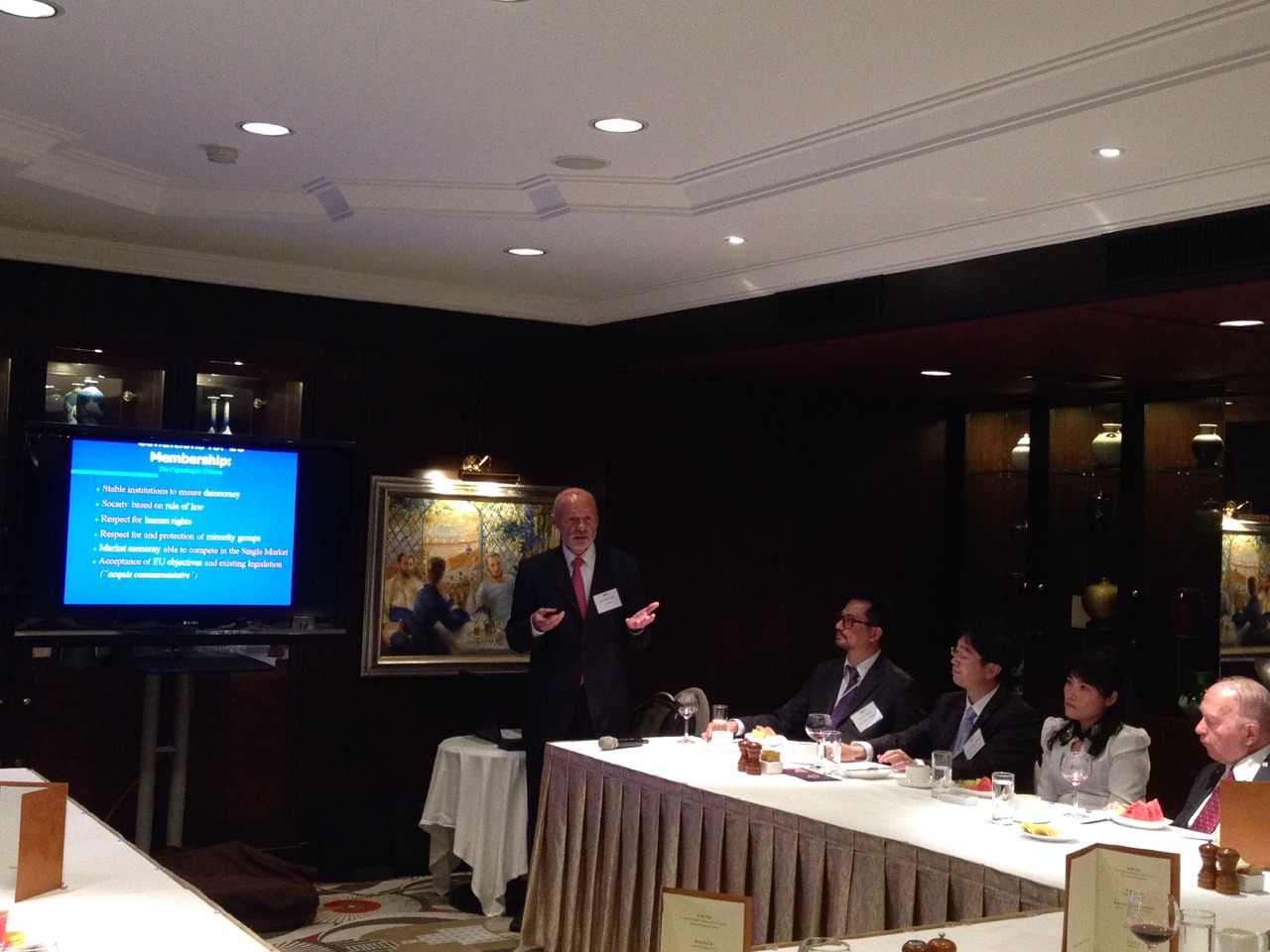Europe and East Asia: Comitology versus guanxi?

The underlying motive for establishing the European Union was to avoid war. Because steel, and the burning of coal to produce steel, provided the main conditions for war, the precursor to the European Union was the coal and steel community.
The conditions for membership of the European Union are stable institutions to ensure democracy, society based on rule of law, respect for human rights, respect for and protection of minority groups, a market economy able to compete in the single market and acceptance of EU objectives and existing legislation. Interestingly, the conditions say nothing about geography, meaning it is theoretically possible for a country not geographically located in Europe to apply for membership.
Europe differs from the United States in that it focuses on embracing multiculturalism compared to the US's "melting pot" of assimilated cultures. Despite the aim to embrace diversity, there are prejudices going back through history which persist today in the EU. A good example is discrimination against Roma people.
Asia is developing fast and accounting for a growing share of global trade. Asia is market-oriented. The dualism of economic and political relationships is very characteristic of Asia whereby you have political conflict while business goes on, according to Pape. Unlike in the EU, there is still a low level of common rules and political interaction but there have been moves to create trade blocks such as an ASEAN economic community in South East Asia with strong links to the larger north-east Asian economies (China, Japan, South Korea and India). This offers opportunities as well as challenges. On the one hand there is great complementarity in terms of market, production and trade. On the other hand, there are clear differences between the European and Asian approach to integration. Asia has been market-driven for business with guanxi (after centuries of poverty) and consumers while European integration has been elite-driven, top-down and mostly through technocratic committees. Both of these approaches lack transparency and are imperfect. The EU's process of comitology (the methodology of committees setting policies) has been criticized for lacking democratic oversight while in Asia, the focus on nation states (as opposed to member states) breeds nationalism in the region and has given rise the risk of a power imbalance, not unlike what happened in Europe in the 19th century. This brings with it the risk of war.
The rule of law is not the same as rule by law. For example, in order for China to become a member of the World Trade Organisation, it was required to enact a number of laws in a very short space of time, which had no real basis or precedence in Chinese practice. Under these circumstances it should not be surprising if rules are not followed. It is important that the rule of law has a democratic process behind it like in the EU, where the development and evolution of laws go back to Roman times. As a consequence, the foundation of laws is embedded and accepted by the whole society. It takes a long time to become a democratic society. For example, former communist countries in Europe had to go a through long process to meet the EU's membership criteria and any country wishing to join the EU has to accept the rules set up by the EU. Europe is not so much a geographical entity but a unity of values. This makes it difficult for countries like Turkey to join. While EU members occasionally violate EU principles, pressure on members who violate principles is generally very effective in getting members to fall in line. If not, punitive sanctions are used.
There are a number of advantages of having a central transnational authority in charge of governing certain aspects such as the common market and to deal with transnational crises. The EU common market now covers not only the free flow goods but also services. Since 1992 national leaders have had nothing to do with commercial relations in the EU and all of it has all been done at central level. In addition, some issues cannot be resolved at a national level. During the past crises, governance at EU level became much more important. Issues related to the environment also need supranational organization. For example, up to 30% of the fisheries catch in the EU is wasted. To address this problem, member states got together to revise laws. This type of regulation is difficult to do except at a regional level. New rules are aimed at reducing waste and should have a significant long term effect. In addition, the setting of common standards provides benefits that extend beyond the EU. For example, the influence of EU standards (eg telecom standards) is the reason why Nokia managed to once secure 30% share of the global cell phone market. Because Europe is the world's largest market, the common European standard often becomes the global standard. Another good example of how the central EU authority produces mutual benefits came in response to the recognition of the enormous waste generated by making new plug chargers for every new model of cell phone. In this case the EU first brought together stakeholders from member states to agree to a common plug charger standard. At first the standard was introduced as voluntary but the European parliament is now working to make the standard a binding law.
